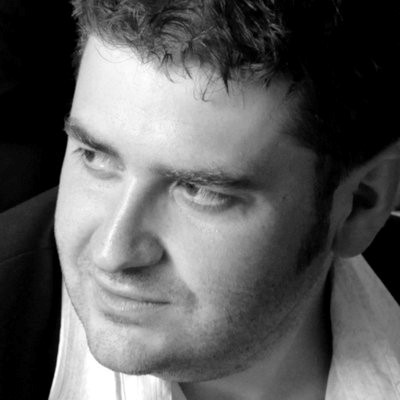What value does a person hold in society? Is a person more valuable because they come from a rich family, have a certain color skin, hair, and eyes? Are people more or less valuable if they are born or acquire disabilities during their lives? I often remind people that disabilities are part of life. A person is not broken because they are born with or acquire disabilities later in life. Bottom-Line we all add value to society.
Our daughter Sara was born with Down syndrome. Many 'experts' told us her life was a tragedy. We were told that she would be unable to care for herself and would be a burden on our family. We refused to believe the experts. We decided to treat our daughter like any other child and help her become the best person she could become.
Sara was born in the United States and several years later President George H.W. Bush signed the American's with Disability Act in 1990.
The ADA helped our family ensure that our daughter had the same rights as people without disabilities.
At the time, other families and persons with disabilities around the world did not have the same protections. They were not afforded the same opportunities as our daughter.
Caption: Sara Ruh, Age 2
I recently had this conversation with a friend of mine named Ian Hamilton. Ian is an accessibility expert and advocate and understands the importance and value of accessible digital entertainment. He focuses on gaming and assuring we all can enjoy them.
Caption: Ian Hamilton
He told me a story about his father and his great aunt Jean Dewar. Jean Dewar was born with a disability and society gave her no support or protection. She died after a frustrating and sometimes unhappy life. Ian's father, Bill Forbes-Hamilton, hoped that someone would tell Jean's story as a testament and record of her existence.
It's a simple anecdote of the importance of making society accessible to us all. This is especially true with the importance of accessible recreation.
Jean was born around the turn of the century, to a poor family in the small city of Brechin in Scotland. She was born with multiple disabilities, including profound hearing loss.

Caption: Brechin High Street, Scotland, around the time of Jean's birth -
Picture Credit Valentine Series
Jean was born in a time before widespread sign language. She could not communicate meaningfully with anyone outside of immediate family. She lived in the gap between the end of silent movies and the start of subtitles in cinemas. Her motor impairments prevented her from taking part in physical leisure activities. Between all of these things, she had extremely limited opportunities for recreation, education, and employment.
The greatest joy in her life was her books that she loved to read. Her books were her gateway to the world that did not seem to understand or accept her. But later in life her vision started to deteriorate and she could no longer read the small printed text in books. So she lost her precious books because they were no longer accessible to her. For the rest of her life, she was trapped within the cage of her impairments, with no escape. Her sole form of recreation became sitting in her room looking into the fire.
If Jean had been born 28 years ago like our daughter Sara, things would have been different. She would have had a chance to be heard and to participate in more meaningful ways in society.
If she had been born today she would have had even more opportunities to participate in society. The UK is one of the many countries that has signed and ratified the Convention on the Rights for Persons with Disabilities (CRPD). Jean would have been allowed to attend school, learn sign language, and even been prepared to enter the workforce. She would have had access to apps, tablets, and smart-phone that would allow her to communicate her friends and family.
She could have owned a reading device like a Kindle or Nook. These devices provide extra convenience for the rest of us, but it would have been profoundly life changing for her. Just the simple feature of being able to adjust text size would have completely transformed her quality of life. Plus she would have benefited from the work of her grand-nephew and others - she could have owned gaming systems that were fully accessible to her. She could also have enjoyed characters in the books and games that were similar to her.
Some people have told Ian that his work with gaming is trivial. This could not be further from the truth. Ian notes that the gaming industry has annual revenue of over $80 billion. That's a figure that is very close to all filmed entertainment combined --TV, DVDs, streaming videos, and movie/cinema box office. Games are a pervasive and deeply embedded part of our culture and society, so it's a pretty big deal to be excluded from it.
The importance of accessible gaming runs deeper, too. Gaming represents access to recreation, to cultural life, and to socializing. These are all essential for our quality of life, and can mean the difference between existing and living.
Caption: Sara Ruh speaking at the Shafallah Center in Doha, Qatar
Today Sara Ruh is 28 years old, she works at Nordstrom's and Ruh Global Communications as our CIO (Chief Inspiration Officer).
She is a keynote speaker and has spoken to thousands of people at conferences and shows all over the world. She speaks about her life, education, employment and shows that her life adds value to society.
She uses a kindle, iPad, and iPhone to play games, use social media, read books and communicate with friends all over the world. Sara is also an avid gamer and uses the Wii, PlayStation and Xbox 360.
The life she leads today is very different to Jean's. Progress continues to be made, in gaming alone we've recently seen Sony adding a swathe of accessibility features to the PlayStation 4, industry bodies around the world working on awareness raising initiatives, and ever growing numbers of game developers considering people with disabilities with the help of resources such as http://www.gameaccessibilityguidelines.com.
Society still has a lot of work to do to assure full access and true disability inclusion. Let's always remember Jean Dewar's life and strive to make the world a more inclusive and accessible world for us all. Jean's nephew Bill wants us to all to know that despite the world not yet having been able to include her - she was and is remembered.
To learn more about Debra Ruh, please visit www.RuhGlobal.com or follow on most social media platforms @debraruh. You can also follow Sara Ruh @sararuh and Ian Hamilton on Twitter at @ianhamilton_.



